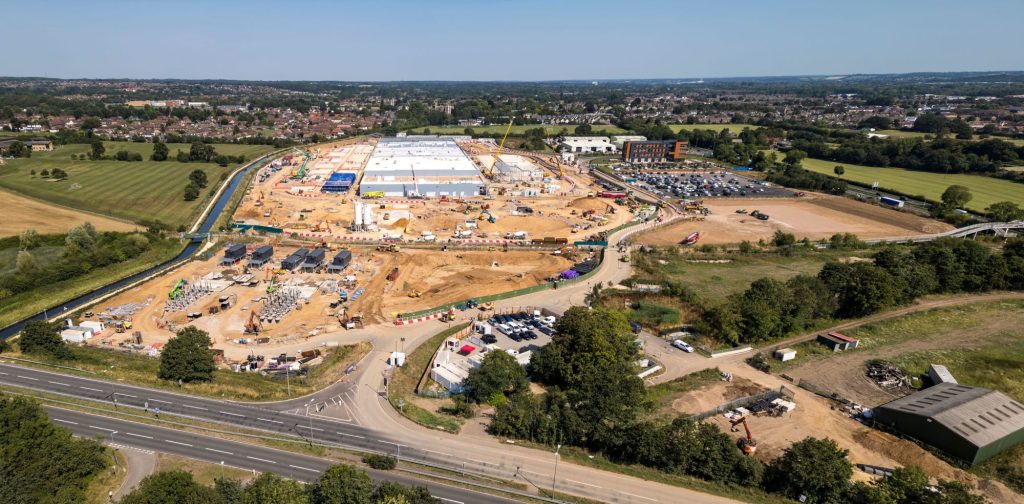
2YNNW58 Panoramic aerial view of the new Google data centre under construction (Aug 24), Waltham Cross, UK
In a rapidly evolving technological landscape, the UK’s position in the global AI race is under intense scrutiny. As Google UK’s public policy lead, Tom Morrison-Bell highlights the challenges and opportunities the country faces, particularly in terms of its technological infrastructure. Despite ambitious government plans, the reality of Britain’s tech capabilities suggests a risk of being overshadowed by giants like the US and China.
The Need for Robust Tech Infrastructure
Morrison-Bell emphasizes that the UK’s future as a leader in AI heavily depends on the development of foundational infrastructure, notably data centres and grid connections. “If you strip it all back, it’s about how quickly you can get connection to the grid,” he notes, underscoring the need for rapid development in these areas.
Google is making significant strides with its $1 billion data centre in Waltham Cross, aimed at bolstering AI innovation and cloud services. Scheduled for completion in 2025, this facility represents a critical step toward meeting burgeoning demands. However, slow grid connections are a persistent hurdle. With timelines sometimes stretching to a decade for grid access, they represent a significant bottleneck in the swift rollout of necessary infrastructure.
Overcoming Bureaucratic Hurdles
The bureaucratic issue of energy grid allocation is another obstacle. Morrison-Bell advocates for prioritizing projects ready for connection rather than the first-come-first-served system currently in place. This strategy could eliminate ‘zombie projects’—those that secure grid placements without definitive plans to materialize—thereby streamlining the process for more viable developments.
This approach aligns with proposals in the Planning Bill, which suggest that critical national infrastructure projects, like data centres, should receive expedited planning consideration. Such legislative support would enhance the UK’s capability to leverage AI as a growth engine effectively.
Google’s Role and Vision
While challenges persist, Google remains optimistic about its role in the UK’s tech landscape. Morrison-Bell envisions Google as integral to the UK’s AI ambitions, rooted in a long history of innovation and investment. The launch of DeepMind in London and its subsequent advances—like the Nobel Prize-winning AlphaFold program—illustrate Google’s commitment to pioneering cutting-edge solutions in AI.
AlphaFold, which predicts protein structures, has revolutionized biological understanding and drug development, underscoring the transformative potential of AI-driven research. This aligns with the broader AI innovation opportunity, estimated at around £400 billion by 2030, according to research with Public First.
Navigating the Competitive Landscape
Amidst global investment disparities, some question the government’s capacity to match the commitment levels seen in other countries. While Morrison-Bell refrains from direct criticism of the UK’s pace, he acknowledges the need for a forward-thinking agenda to maintain competitive advantage.
Simultaneously, Google must navigate regulatory challenges, including potential new rules from the Competition and Markets Authority on search and advertisement practices. Nonetheless, Morrison-Bell remains confident in the mutually respectful relationship between Google and the UK government, framing the dialogue as constructive and forward-looking.
Looking Forward
As Britain seeks to secure its place as a global AI leader, the path must include comprehensive support for technological infrastructure. Google’s initiatives, alongside a supportive governmental framework, could propel the UK into a new era of tech-led growth. For now, attention turns to whether the government can act swiftly enough to harness the potential of this digital revolution fully.



